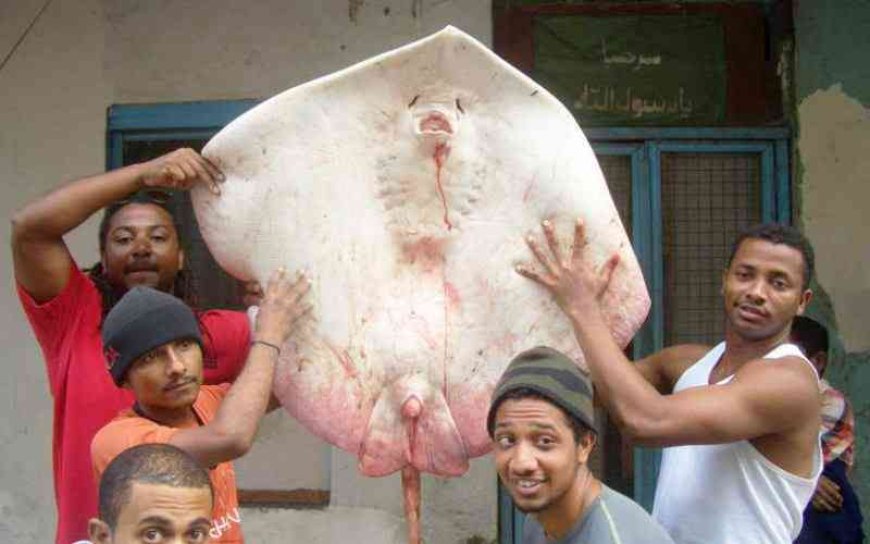Fishing gear exchange programme to reduce unsustainable fishing in Lamu

Lamu, Monday June 12, 2023
by Amenya Ochieng
Some 176 fishermen based in Kiunga, Lamu County will benefit from a Fishing Gear Exchange programme aimed at ensuring fishing crews adopt the use of eco-friendly nets that embrace sustainable fishing practices.
The exchange programme is a collaboration between the Lamu County Government, The Northern Rangeland Trust (NRT) and The Nature Conservancy (TNC).
Speaking in Kiunga Ward, Sunday, while launching the project, Governor Issa Timamy said the initiative aims at ensuring that fishermen in the Kiunga Marine National Reserve (KMNR) voluntarily exchange destructive, beach seine nets for more sustainable fishing gear.
Consequently, Timamy commended 11 fishermen crew out of 15 in Kiunga for surrendering their former fishing gears that posed devastating effects on marine wildlife, due to overfishing, stating that this move would lead to less wastage of fish produce.
According to Kenya Wildlife Service (KWS) estimates, fishermen throw away about 60 percent of their catch for being fishlings that have not fully grown into fish, once they have been caught by the beach seine nets.
Beach seines consist of long nets made of nylon fibre of varying mesh sizes and lengths ranging from 200 to 300 metres and have floats along the top and weights at the bottom.
They are usually placed in shallow waters and dragged by the crew to herd fish into a smaller pocket (or cod-end) and have been popular among fishermen for catching everything they encounter, thus increasing the risk of overfishing due to catching high volumes of juvenile fish, while also causing damage to coral reefs and seagrass.
“To facilitate the voluntary exchange of beach seines nets in the County, the Gear Exchange Program is supporting 176 beach seine fishers in the Kiunga Marine National Reserve, with more sustainable fishing gears,” Timamy stated, adding that the programme is in line with the government’s Blue Economy agenda of promoting ethical fishing practices.
The Nature Conservancy Africa Fisheries Strategy Manager, George Maina, said that the organization is committed to working with fisher communities and other partners to implement complementary interventions that ensure fisheries are managed in a way that results in stable supplies of seafood, thriving coastal communities and ecosystem conservation.
Sentiments echoed by the Chairman of Kiunga Wildlife Conservancy Association, Ali Shali, who expressed his appreciation of the engagement and consultation process that has gone into the Gear Exchange Programme.
This therefore means, combination of local community cultural understanding, coupled with scientific expertise has helped in building trust and understanding among the fishers on the need to stop using beach seines.
The Northern Rangeland Trust Coast Region Director, Hassan Yusuf, said they were working at the grassroots level with local fisher communities, to ensure that the fishers voluntarily exit from using destructive beach seines.
He further underscored the need for joint efforts among all stakeholders to support the communities in stewarding sustainable fishing practices that will encourage healthy marine ecosystems and livelihood benefits.
On her part, Senior Research Scientist at Kenya Marine Fisheries Research Institute, Dr. Gladys Okemwa, stated that scientific monitoring will be conducted to ascertain the impact that the new gears have in terms of volumes of the catch, species and sizes of the fish that are caught by the new nets.
Courtesy ; K. N. A
What's Your Reaction?



































































































































































































































































































